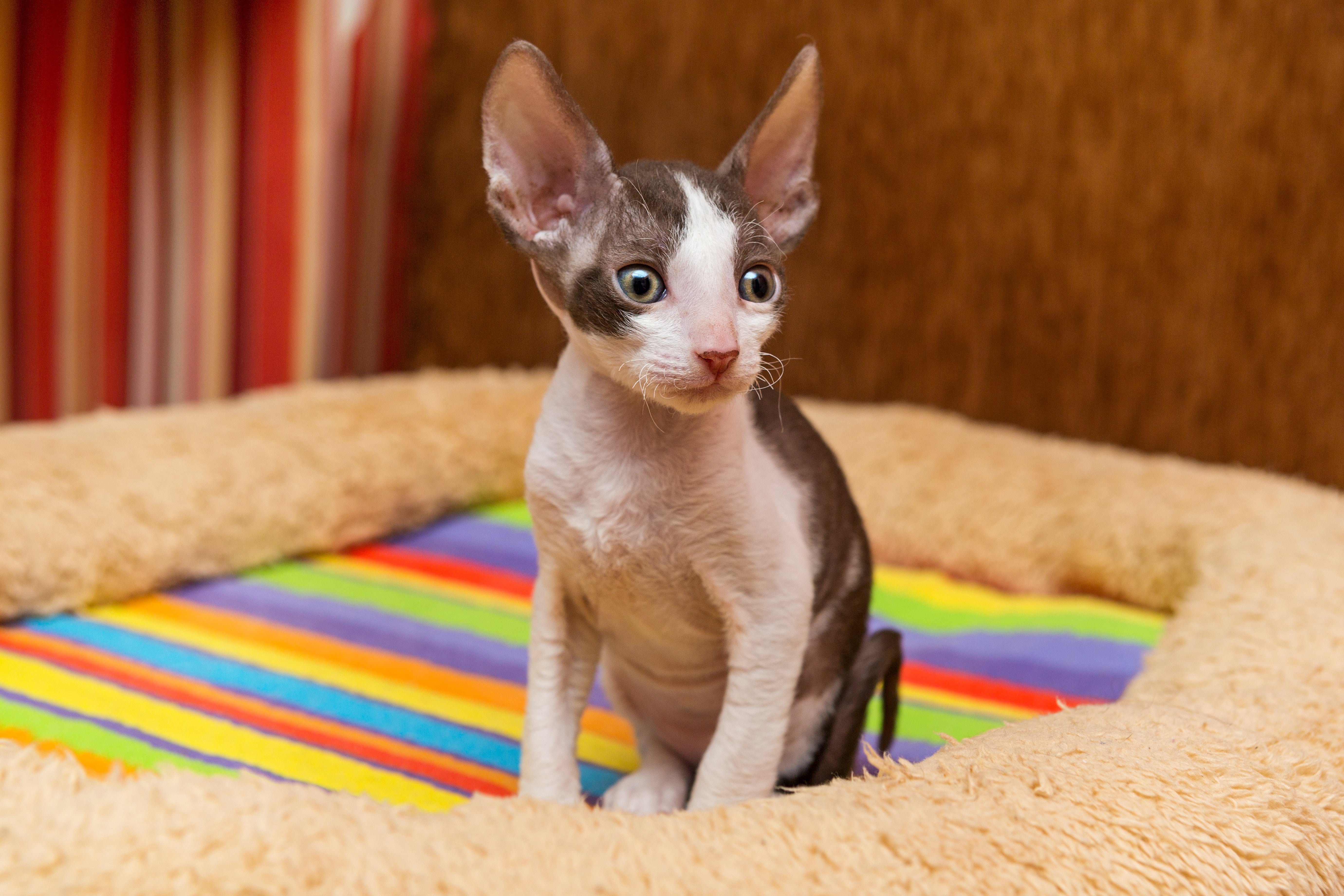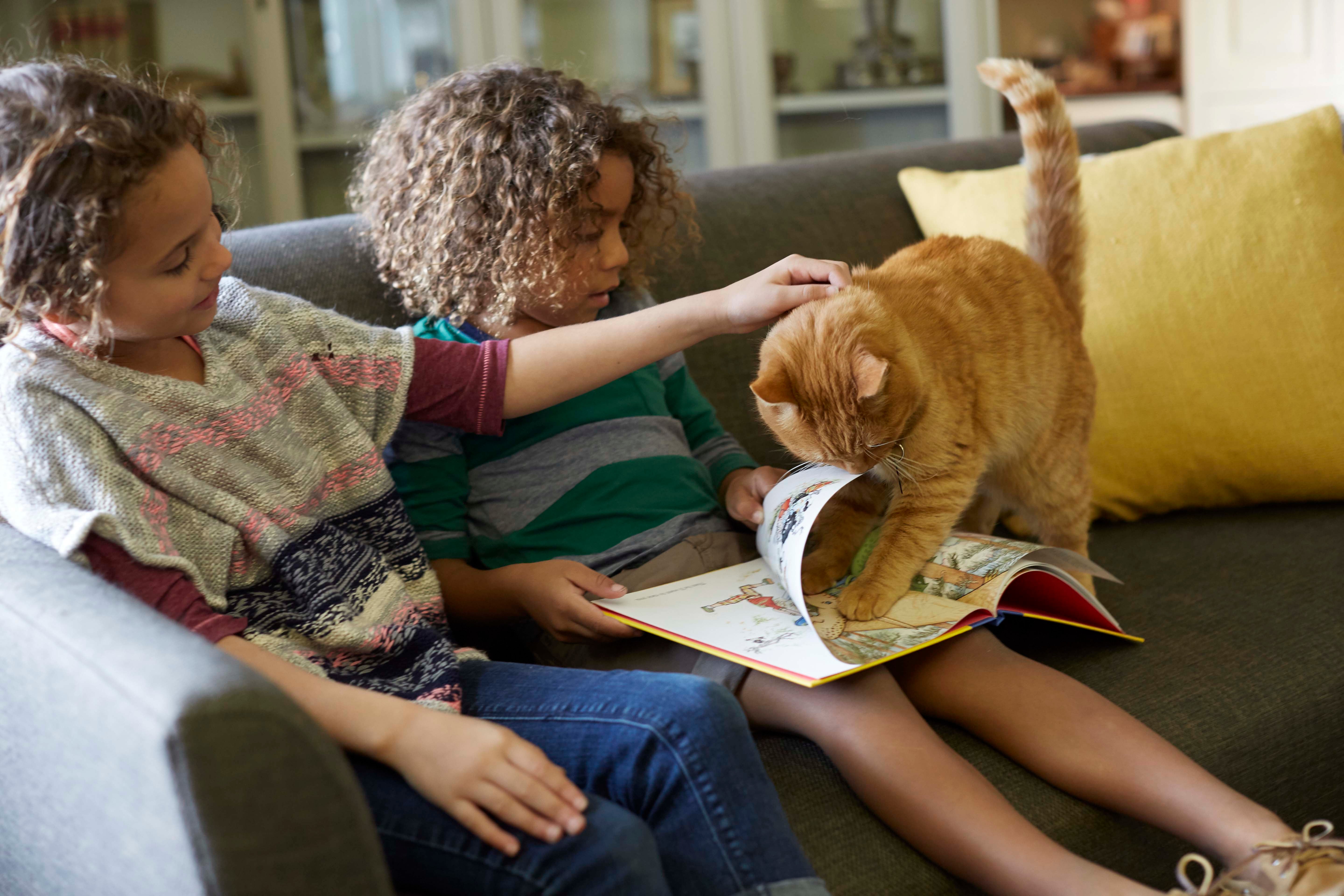Cornish Rex
With a lean, athletic build and a distinctive wedge-shaped head, the Cornish Rex is instantly recognizable. Their most striking feature, however, is their coat. Unlike any other cat, the Cornish Rex boasts a curly, rippled coat that covers their entire body, including their whiskers and eyebrows. Surprisingly dense and warm for such a short coat, it feels incredibly soft to the touch. This captivating combination of appearance and texture sets the Cornish Rex apart from all other cat breeds
Breed characteristics carousel
Learn More
Need to Know
- Suitable for an experienced owner
- Needs a high level of enrichment
- Playful and curious cat
- Independent but friendly
- Slightly talkative cat
- Lean and elegant cat
- Requires regular grooming
- Indoor cat
- Can be regularly left alone for a few hours
- Prefers a relaxed home

Personality
Cornish Rex cats are playful, intelligent, and endlessly curious. With their athletic build and boundless energy, they resemble playful kittens well into adulthood. These sociable and affectionate felines thrive on human interaction and often form strong bonds with their owners. Inquisitive by nature, they love to explore every nook and cranny, and their playful antics can be both entertaining and challenging. While known for their gentle and loving demeanor, Cornish Rexes also have a mischievous side, with a penchant for stealing food and climbing to unreachable heights.
The Cornish Rex is a relatively young breed having been discovered in 1950 when a curly-coated kitten (eventually named Kallibunker) was found by chance in Cornwall, England. Through careful breeding with Siamese Cats, the elegant Cornish Rex emerged. The breed’s distinctive appearance, however, is the result of a recessive gene, meaning both parents must carry it to produce curly-coated kittens. This genetic quirk has led to the development of other "rex" breeds, including the Devon Rex, LaPerm, and Selkirk Rex, each with its own unique characteristics. Even still, the Cornish Rex remains the original and most widely recognized of these curly-coated cats.
While they are adaptable, Cornish Rexes appreciate a home environment that allows them to explore and exercise their curious minds. Someone who values a cat's companionship and is willing to provide mental and physical enrichment will find companionship in the Cornish Rex.
These curious and playful felines need plenty of opportunities to climb, explore, and engage in interactive play. Providing scratching posts, cat trees, and other vertical spaces is essential to prevent furniture damage. Mental stimulation is equally important, with puzzle feeders and interactive toys helping to keep a Cornish Rex cat’s mind sharp.
Cornish Rex cats are indoor cats by nature since their delicate coat isn’t suited for harsh weather conditions—not to mention that their curious and friendly personalities make them susceptible to outdoor dangers. While they may enjoy spending time outdoors, a secure and enclosed space is essential to protect them from harm. Creating a safe outdoor environment, such as a catio or fenced-in area, allows Cornish Rexes to experience the fresh air while minimizing risks.
Cornish Rex cats are remarkably low-maintenance when it comes to grooming. Their unique, short coat requires minimal brushing, with occasional use of a soft brush to remove loose hair. While they are generally excellent at self-grooming, monitoring their coat condition is essential.
Cornish Rex cats can be trained to learn basic commands like “sit” and “come.” They are smart and want to please their owners. Positive reinforcement methods work best.
Cornish Rex cats thrive in calm and patient households. They are best suited for homes with older children or adults who can appreciate their playful and energetic nature. A busy household with frequent comings and goings might overwhelm these sensitive friends. They prefer a quieter environment where they can bond closely with their humans.
The cost of a Cornish Rex from a breeder is significantly more than the cost of adopting one from a local shelter or rescue. The adoption fee usually covers additional items such as spaying or neutering, vaccines, and microchipping.

Learn more about feeding and caring for your Cornish Rex on Purina.
Did you know?
- Cornish Rex cats retain their kitten-like energy well into adulthood, making them constant sources of entertainment.
- The Cornish Rex cat breed’s signature curly coat is caused by a natural genetic mutation, making them look like little furry teddy bears.


